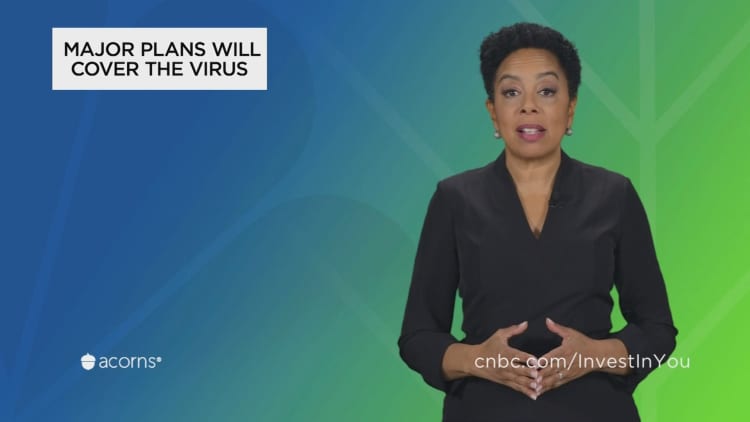
As uncertainty grips the stock market amid the coronavirus pandemic, many investors may be tempted to pull their money out. Instead, investors should take a deep breath and follow these steps.
First, review your time horizon. If you are decades away from retirement, you have time on your side and can be more aggressive. In fact, as stocks dip, this presents an opportunity to buy at a discount.
You'll have more time to deal with market fluctuations, as well. Investing in the S&P 500 over the last 20 years produced an annualized return of 7.2%,
If you are less than five years away from retirement, however, you should be more conservative with your investment strategy.
You should also take the time to check your asset allocation. Many investors in 401(k) plans "set it and forget it." Most financial advisors recommend an asset mix of 80% stocks and 20% bonds if you have a long time horizon. As you approach retirement age, begin to shift allocations from stocks to bonds, as bonds are safer and more stable.
No one likes to lose out on free money. Review your contribution rate if your employer offers a 401(k) match. Invest enough of your own money to capitalize on that "free money."

Since the coronavirus began spreading in the U.S., you may have seen viral videos of empty grocery stores and long lines to fill up prescriptions. But do you have enough money saved in case you cannot work for an extended period?
If not, begin by scaling back your spending. Identify two or three items that you can live without. In the wake of the COVID-19 outbreak, federal and local governments are urging people to avoid social gatherings; therefore, spending categories like dining out or entertainment should be easy to cut back on.
More from Invest in You:
Daymond John: How to make the best of being stuck at home
Small-business owners starting to panic, banking expert cautions
Trump hints at payroll tax cuts to mitigate coronavirus effects
Consider using only cash or debit cards. Studies show that you are more likely to make an impulse purchases while using a credit card.
Once you've cut back, it's time to start saving. One of the easiest ways to save is to automatically transfer cash from a checking account into a savings account. To avoid the temptation of dipping into your savings, open a savings account at an online bank you don't have a checking account at. There are several you can choose from. Online banks often offer higher yields,which means your money will grow faster.

If you wondering whether your health insurance plan will cover costs associated with coronavirus treatment, rest assured. According to eHealth, the online insurance marketplace, all major health plans should cover the virus, just like the flu or any other virus.
But before your coverage kicks in, you can expect some out-of-pocket costs, such as co-pays, deductibles and coinsurance. Be prepared and have some money set aside to pay for these expenses.
If your hospitalized or quarantined, you should be covered, just like any other inpatient stay. If you are self-quarantined and visited by a doctor, this, too, should be covered.
However, if you are seeking alternative forms of treatment, be prepared to pay out of pocket, as these treatments will not be covered.
SIGN UP: Money 101 is an 8-week learning course to financial freedom, delivered weekly to your inbox.
CHECK OUT: Clean your phone at least once a day, says infectious disease specialist — here's how via Grow with Acorns+CNBC.
Disclosure: NBCUniversal and Comcast Ventures are investors in Acorns.






